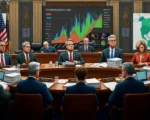Gary Neville, renowned as one of England’s greatest defenders during his time with Manchester United, carved out a significant place in football as a player, pundit, and coach. However, his coaching career has often been under the microscope for its challenges and controversies. This article dives into Gary Neville’s coaching career, examining the key moments and lessons learned along the way.
Entering the Coaching World
After retiring as a player in 2011, Gary Neville transitioned into coaching with hopes of translating his on-pitch excellence to the sidelines. He first stepped into a coaching role in 2012 when he became part of the England national team’s backroom staff under Roy Hodgson. Renting his experience as a player who had accumulated 85 international caps, this role marked the beginning of Neville’s foray into management.
Key Statistics During His Time with England:
- Assistant Coach tenure lasted from 2012 to 2016.
- Participated in three major tournaments: UEFA Euro 2012, FIFA World Cup 2014, and UEFA Euro 2016.
- The national team struggled, culminating in a disappointing Euro 2016 campaign, which saw England shockingly eliminated by Iceland in the Round of 16.
Managing Valencia CF
Neville’s most high-profile role came when he was appointed head coach of Valencia CF in December 2015. The appointment raised eyebrows, with many questioning the logic behind hiring a coach with no prior managerial experience to lead a top La Liga side.
Valencia Tenure Highlights:
- Managed 28 matches during his tenure.
- Achieved 10 wins, eight draws, and 10 losses.
- Notable defeats included a 7-0 loss to Barcelona in the Copa del Rey semi-final, an outcome that epitomized the struggles of his tenure.
- Was dismissed in March 2016 after less than four months, with Valencia languishing in 14th place in La Liga.
Despite Neville’s tactical knowledge and deep understanding of the game, his tenure at Valencia highlighted the steep learning curve faced by first-time managers at the elite level, especially in a foreign league.
Challenges Faced:
- Language Barrier: Neville’s inability to speak Spanish fluently limited his communication with players and affected team morale and cohesion.
- Defensive Struggles: Despite being a defender in his playing days, Neville’s Valencia team conceded an alarming number of goals during his tenure.
- Lack of Experience: Jumping straight into a managerial role at a demanding club without prior head coaching experience proved overwhelming.
Post-Valencia and Focus on Punditry
Following the Valencia stint, Neville returned to his punditry role with Sky Sports, focusing on football analysis and commentary. His contributions as a pundit quickly regained public favor, showcasing his understanding and passion for the game. His balanced and honest insights have made him one of the most respected voices in modern football punditry.
Neville also took a more behind-the-scenes approach to football by investing in Salford City, a lower-league English club co-owned by Neville, his former Manchester United teammates, and entrepreneur Peter Lim. While not actively involved in coaching the team, Neville’s involvement demonstrates his continued dedication to the sport and his desire to impact grassroots football positively.
Lessons From Neville’s Coaching Career
- Preparation Matters: Coaching, especially at the elite level, requires experience, preparation, and a deep understanding of management beyond tactical knowledge.
- Adaptability Is Key: Managing a team in a foreign country requires cultural and linguistic adaptability, areas where Neville admittedly struggled during his Valencia tenure.
- Understanding Pressure: Elite-level coaching demands handling criticism and pressure, similar to what Neville encountered both at Valencia and as part of the England coaching staff.
A Legacy Beyond the Dugout
Though his coaching career may not have reaped the same accolades as his playing or punditry career, Gary Neville’s experiences offer invaluable insights into the challenges of modern football management. His Valencia tenure, while brief, highlights the importance of preparation, adaptability, and resilience.
Gary Neville may not have achieved managerial glory, but his broader contributions have cemented his place as one of football’s most influential figures. Whether as a player, pundit, or investor, Neville’s insights continue to shape football conversations and inspire the next generation of players and managers.








